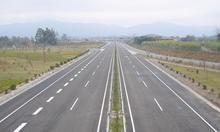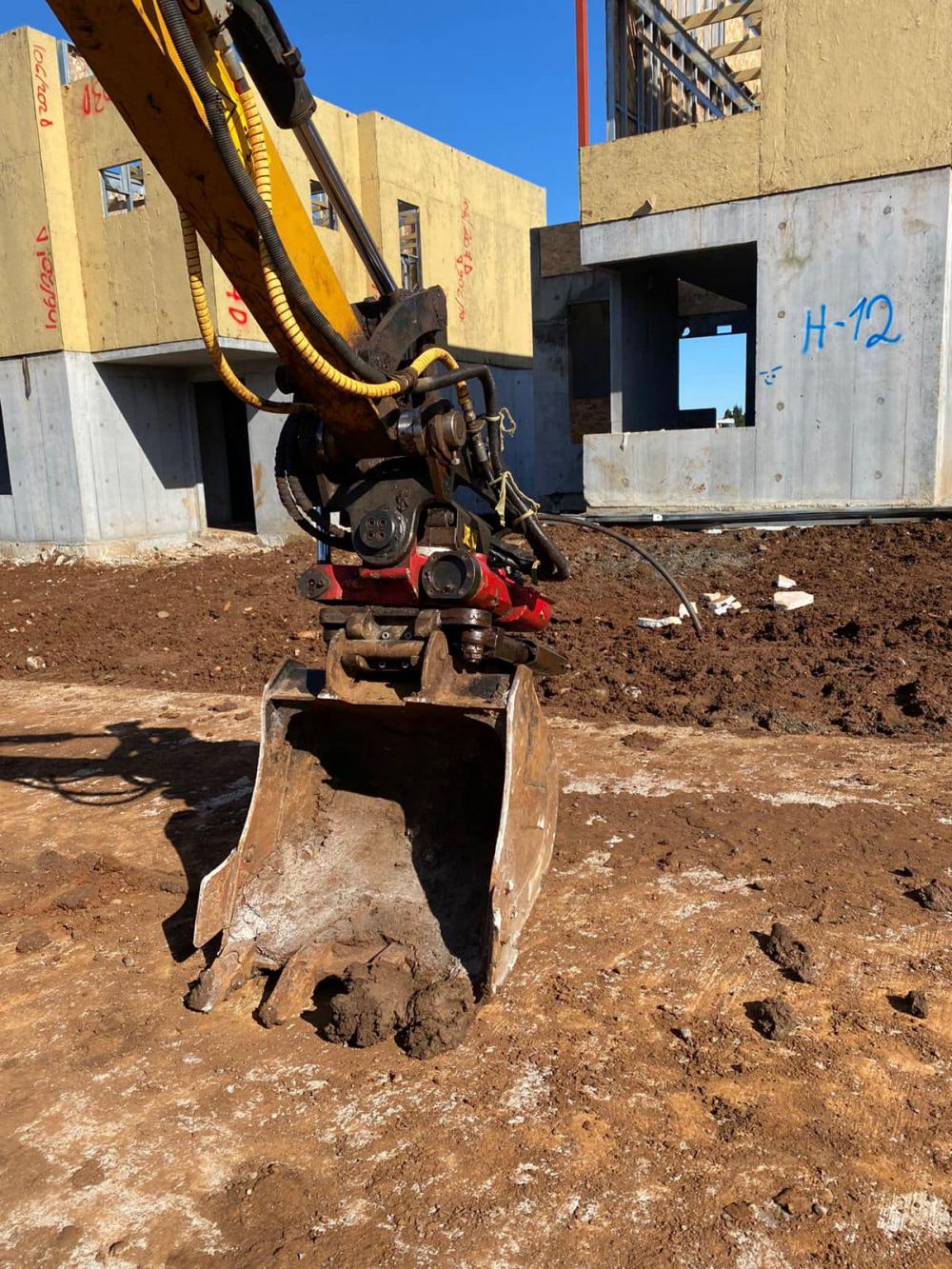CATSU digging bucket is a type of Excavator Attachment that is used for digging and excavating soil, rocks, and other materials. It is typically made of heavy-duty steel and features sharp teeth or edges on the bottom to help break through tough materials. Digging buckets come in a variety of sizes and shapes to suit different excavation needs and can be attached to a range of different types of excavators.
When it comes to construction and excavation projects, having the right equipment is essential for efficient and effective work. Two commonly used attachments for excavators are digging buckets and sorting buckets. While both serve different purposes, they offer distinct advantages depending on the nature of the job at hand. Excavator Digging Bucket,24 Digging Bucket,600Mm Digging Bucket,Cat Digging Bucket CATSU Hydraulic Machinery Equipment Co.,Ltd , https://www.tiltrotatorcatsu.com After the loan is repaid and the operation period expires, the freeway may charge a toll on the principle of satisfying the basic maintenance and management expenditure requirements, except that the public finances shall bear the maintenance expenses.
After the loan is repaid and the operation period expires, the freeway may charge a toll on the principle of satisfying the basic maintenance and management expenditure requirements, except that the public finances shall bear the maintenance expenses.
Toll highways will be extended for a large number of holidays due to major holidays. After the loan is repaid and the operating period expires, the toll can be charged on the principle of satisfying the basic maintenance and management expenditure requirements. The Regulations on the Management of Toll Roads, which came into effect on November 1, 2004, is planned to be amended to cover the above-mentioned changes.
Yesterday, the Ministry of Transport issued the Regulations for the Administration of Toll Roads (Amendment Draft for Solicitation of Comments), and publicly solicit opinions. The deadline for collection of opinions is June 7.
[Focus 1]
Toll Road Due to the Festival's Free Deferred Period For the toll highway tolls concerned, Article 14 of the Regulations Governing the Administration of Toll Roads stipulates that the time limit for the repayment of loans by the government shall be based on the principle of repaying loans and repaying funds on a fee basis. Determined that the longest can not exceed 15 years. The time limit for reimbursement of highways by the government determined by the State in the central and western provinces, autonomous regions, and municipalities directly under the Central Government shall not exceed 20 years. The term of charge for operating highways shall be determined in accordance with the principle of recovery of investment and reasonable return, and shall not exceed 25 years. The period of charge for operating highways in the provinces, autonomous regions, and municipalities directly and centrally determined by the state shall not exceed 30 years.
The “Amendment†does not change the term of charges for commercial highways. Instead, it adds “If the state implements a free policy that affects the legitimate income of business managers, it can be compensated through appropriate extension of the charging period. ."
Interpretation
"The non-best way to extend the charge period"
The above terms mean that with the implementation of the festival free policy, the 25-year fee period for commercial highways will be extended.
In this regard, Professor Zhang Zhuting of the Institute of Management and Management of the Ministry of Transport stated that the government should play a role in balancing the interests of all parties. Toll highways involve the use of passersby, banks, investors and other parties. On the one hand, it is necessary to affirm the policy of free passage on holidays and the other. Aspects also need to consider the financial order and the rights and interests of investors.
Zhang Zhuting said that although the government’s considerations are appropriate, the “appropriate extension of the charging period†is not the best way. It is hoped that a better solution can be found in this consultation.
Some citizens have indicated that if they enjoy free travel for 20 days a year, if the time limit for this is extended, there will be more tolls to be paid, and how will the time limit for extending the time limit be determined? In this regard, Zhang Zhuting said that this involves the issue of cost accounting for toll highways, and the calculation principle of each toll road must be actuarially. Specific operations and principles should be disclosed to the society.
[Focus 2]
After the toll road has expired, the charges can still be charged. Article 37 of the Opinions stipulates that: When the toll of the toll road expires, the toll must be terminated. If the toll road terminates its charges, the people's governments of the provinces, autonomous regions, and municipalities directly under the Central Government shall make an announcement to the public, clearly stipulate the date for termination of the fees, and accept social supervision.
At the same time, Article 14 adds two additional clauses: If an increase in investment in an expressway due to alteration or expansion requires adjustment of the period of charging, it may be re-assessed in accordance with the relevant provisions of this Regulation; after the repayment and operating period expires, the cost of maintenance shall be borne by public finance. In addition, tolls may be charged on the principle of satisfying the basic maintenance and management expenditure requirements. The charging period may be approved in accordance with the two overhaul cycles of the highway.
Interpretation
"The fees for road maintenance will drop dramatically."
Some netizens said that the above clause states that the toll road will not have a "free" day.
Zhang Zhuting thinks that Articles 37 and 14 are not contradictory and should be viewed in two phases. First of all, if the approved charging period expires, theoretically it will enter the non-allowable charging stage, which is equivalent to the termination of the charging. Secondly, since China’s highways are under territorial management, the cost of high-speed highway maintenance is very high. When some local governments do not have enough financial resources to maintain them, they may need to hire companies to operate in the form of collecting tolls to meet maintenance and management expenditures. Of course, the toll collected for maintenance expenditures will be substantially lower than the current tolls.
Zhang Zhuting said that the maintenance cost has a national quota standard, and even if the fee is charged, it can only meet the cost needs, and it is impossible to make profits as in the operating period.
Which cars are free?
Military vehicles, armed police vehicles, public security organs, and traffic control enforcement of the unified signs of the standard law enforcement vehicles, approved disaster relief vehicles.
For vehicles that meet the requirements of the State for legally loading fresh agricultural products and transport vehicles.
Toll road should meet what standards?
The highway has a continuous mileage of more than 30 kilometers. However, the highways built to improve the national highway network and the urban areas to local airports are excluded.
The first-class highway has a continuous mileage of more than 50 kilometers.
Independent bridges and tunnels are more than 1,000 meters long.
How to determine the fee?
The government repayment of highways shall be determined based on such factors as the loan, the total amount of paid fundraising, the financing cost, the time limit for debt repayment, the local price index, the charging period, and the traffic flow.
The operating highway shall be determined based on factors such as total investment, financing cost, reasonable return, local price index, charging period and traffic flow.
After the repayment of loans and the expiry of the operating period, the toll rates of the expressway shall be determined based on the maintenance and operation management costs.
The toll fees for vehicles can be adjusted in due course according to factors such as traffic flow and changes in the local price index.
How to deal with traffic expenses?
Vehicles that refuse to pay, flee, or reduce traffic expenses and counterfeit fresh agricultural products transport vehicles that intentionally flee traffic expenses, they should make up for the transportation fee, and pay three to five times the amount payable.
Which type of highway is banned from tolls?
Highways that are wholly funded by government investment or organized by social organizations or individuals for donation, construction and maintenance shall not collect vehicle tolls.
What is the difference in the charge period?
The term of charge for operating highways shall be determined in accordance with the principle of recovery of investment and reasonable return, and shall not exceed 25 years.
The period of charge for operating highways in the provinces, autonomous regions, and municipalities directly and centrally determined by the state shall not exceed 30 years.
If the state implements a free policy that affects the legitimate income of the business managers, it may extend the length of the charges and compensate them.
After the repayment of loans and the expiration of the operating period, in addition to the public finances to cover the maintenance costs, the high-speed public companies may collect the tolls according to the principle of meeting the basic maintenance and management expenditure requirements.

Advantages of Digging Buckets:
1. Excavation Efficiency: Digging buckets are specifically designed to penetrate the ground quickly and efficiently. They feature sharp teeth or cutting edges that enable them to break through various types of soil, rocks, and debris. This makes them ideal for digging trenches, foundations, or any task that requires substantial earthmoving.
2. Increased Productivity: The design of digging buckets allows for larger volumes of material to be moved at once. This, in turn, helps to increase productivity by reducing the number of passes required to complete a task. With a digging bucket, operators can save time and effort, ultimately accelerating the project timeline.
3. Versatility: Digging buckets come in various sizes and configurations, allowing for versatility in different excavation tasks. They can be equipped with different teeth options or additional features like tilt rotators, enabling operators to adapt to different soil conditions or project requirements.
Advantages of Sorting Buckets:
1. Enhanced Sorting Capabilities: Sorting buckets are specifically designed for separating materials on-site. They typically feature a grid or sieve-like structure that allows smaller particles to fall through while retaining larger ones. This makes them ideal for tasks like sorting rocks, debris, or separating different materials during recycling processes.
2. Cost and Time Savings: By using a Sorting Bucket, operators can eliminate the need for manual sorting or additional equipment, which can save both time and money. The ability to separate materials directly on-site eliminates the need for separate sorting facilities, reducing transportation costs and increasing operational efficiency.
3. Environmental Benefits: Sorting buckets contribute to environmental sustainability by enabling the separation and recycling of materials. By sorting and recycling on-site, construction projects can reduce the amount of waste sent to landfills, minimize the need for new raw materials, and lower the overall carbon footprint.
Conclusion:
While digging buckets excel in excavation efficiency and productivity, sorting buckets offer advantages in material separation, cost savings, and environmental sustainability. The choice between the two attachments depends on the specific requirements of the project and the desired outcomes. By understanding the advantages of each, construction professionals can make informed decisions and optimize their excavation processes.